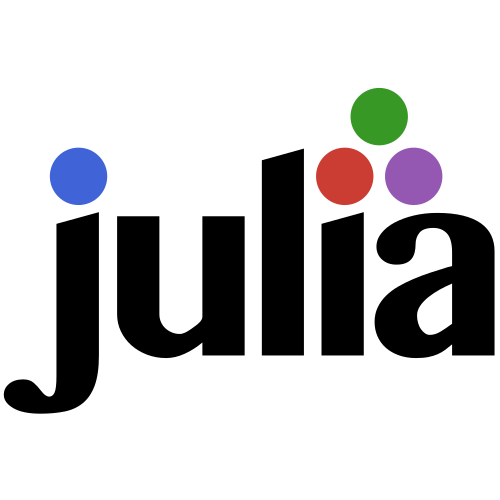
In this course, students will learn the high level, high performance language julia from the basics of programming features to advanced topics on parallel and distributed computing in several sessions.
Julia is getting increasingly popular for scientific computing. One may use it for prototyping as Matlab, R and Python for productivity, while gain the same performance as compiled languages such as C/C++ and Fortran. The language is designed for both prototyping and performance, as well as simplicity.
This is an introductory course on julia. Students will be able to get started quickly with the basics, in comparison with other similar languages such as Matlab, R, Python and Fortran and move on to learn how to write code that can run in parallel on multi-core and cluster systems through examples.
This course is delivered in several sessions through live classes via Zoom and self-paced learning. Students who missed some of the live classes at scheduled time slots may learn at their own pace. Students may ask questions and get answers in the forum for the course.
Students who complete the course activities including quiz and exercises will receive a certificate for the completion of the courses. Attendance and the completion of the course activities are recorded.
- Teacher: Ed Armstrong
- Teacher: Baolai Ge
